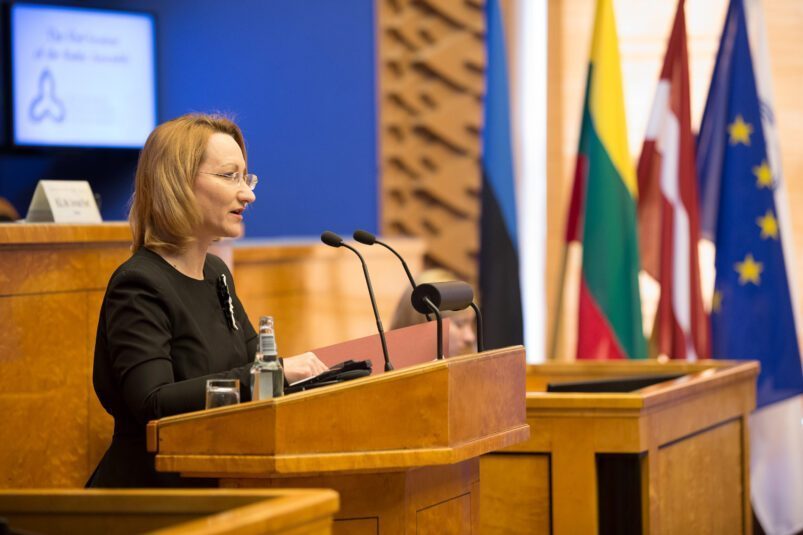On January 19th and 20th, members of the European Parliament are voting about the importance of effective cultural heritage policy. More specifically, this is a follow-up to the European Year of Cultural Heritage in 2018. The MEP’s who are pushing for better policy want the EYCH to have a solid legacy rather than being a one-off event.
This debate and vote about cultural heritage policy were started by an ‘own-initiative report‘, which means that a committee puts forward a report on something they think needs new legislation. This report was led by Dace Melbārde, the Latvian ex-minister of Culture and coordinator for the Committee on Culture and Education of the ECR (European Conservatives and Reformists). Melbārde calls for a more integrated approach to cultural heritage, which involves the equal treatment of tangible, intangible, digital and natural heritage, according to the ECR website.
Source: European Conservatives and Reformists. You can read the full report here, and be sure to check back in for any updates.
Update Wednesday Jan. 20 2021
The resolution on achieving an effective policy legacy for the European Year of Cultural Heritage was adopted on Wednesday by 644 MEPs voting in favour, 18 against and 27 abstentions.
“Almost 300 000 people work in the cultural heritage sector in Europe and almost 7,8 million jobs in Europe are indirectly linked to it,” stressed the rapporteur Dace Melbārde (ECR, LV) in plenary debate preceding the vote.
Due to the effects of COVID-19 pandemic “museums, galleries and other places of cultural significance had to close their doors to the visitors, resulting in drastic fall in revenues, limiting the capacity to maintain and manage the monuments of culture and reducing welfare of those employed in sector”.
According to Eurobarometer, “84% of respondents in Member States consider cultural heritage to be important for them personally as well as for their local communities”, she stressed and that now was the “right time to start working on sustainable financing models for safeguarding cultural heritage and reducing its dependency on income from commercial activities”.
To address the current crisis, MEPs urged in the resolution for the Commission and the Member States to offer “adequate and targeted” financial support to alleviate the crisis in the cultural and creative sectors and help the people employed in them.
On the other hand, they praised the quick responses by cultural operators who during the lockdown had made the cultural heritage freely available via digital solutions and stressed the importance of allocating sufficient funding for the digitalisation efforts. They called for a “comprehensive EU framework with funding for the protection and promotion of digitised and born-digital cultural heritage”.
Read more details in the adopted text: https://www.europarl.europa.eu/doceo/document/TA-9-2021-0008_EN.pdf
To read more about policy, click here or check out one of the tags below:

